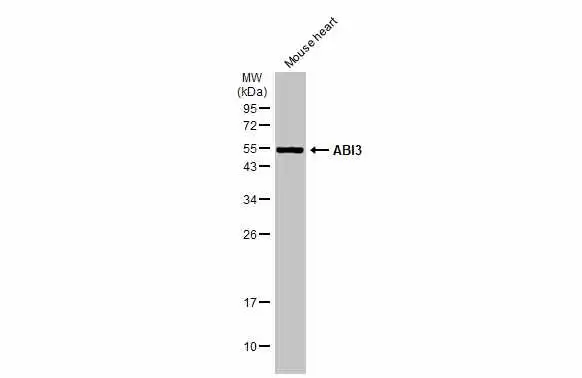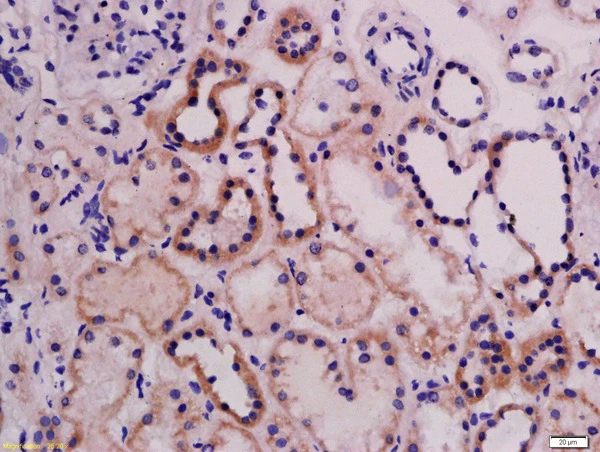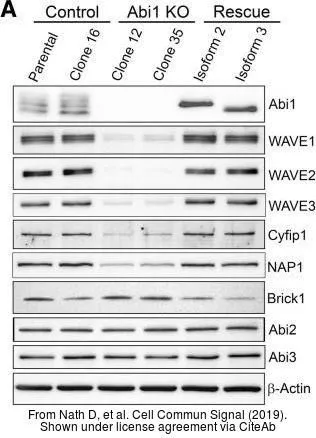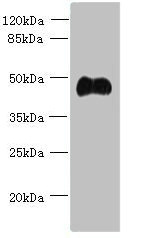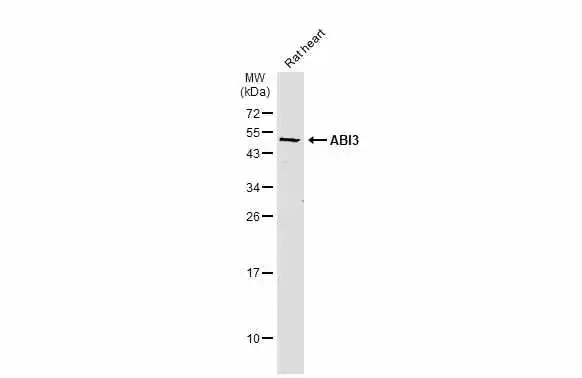
Rat tissue extract (50 μg) was separated by 12% SDS-PAGE, and the membrane was blotted with ABI3 antibody (GTX60228) diluted at 1:500. The HRP-conjugated anti-rabbit IgG antibody (GTX213110-01) was used to detect the primary antibody, and the signal was developed with Trident ECL plus-Enhanced.
ABI3 antibody
GTX60228
ApplicationsWestern Blot, ImmunoHistoChemistry, ImmunoHistoChemistry Paraffin
Product group Antibodies
ReactivityHuman, Mouse, Rat
TargetABI3
Overview
- SupplierGeneTex
- Product NameABI3 antibody
- Delivery Days Customer9
- Application Supplier NoteIHC-P: 1:50-400. *Optimal dilutions/concentrations should be determined by the researcher.Not tested in other applications.
- ApplicationsWestern Blot, ImmunoHistoChemistry, ImmunoHistoChemistry Paraffin
- CertificationResearch Use Only
- ClonalityPolyclonal
- Concentration1 mg/ml
- ConjugateUnconjugated
- Gene ID51225
- Target nameABI3
- Target descriptionABI family member 3
- Target synonymsNESH, SSH3BP3, ABI gene family member 3, new molecule including SH3
- HostRabbit
- IsotypeIgG
- Protein IDQ9P2A4
- Protein NameABI gene family member 3
- Scientific DescriptionThis gene encodes a member of an adaptor protein family. Members of this family encode proteins containing a homeobox homology domain, proline rich region and Src-homology 3 (SH3) domain, and are components of the Abi/WAVE complex which regulates actin polymerization. The encoded protein inhibits ectopic metastasis of tumor cells as well as cell migration. This may be accomplished through interaction with p21-activated kinase. Alternative splicing results in multiple transcript variants. [provided by RefSeq, Sep 2013]
- ReactivityHuman, Mouse, Rat
- Storage Instruction-20°C or -80°C,2°C to 8°C
- UNSPSC12352203
References
- Nath D, Li X, Mondragon C, et al. Abi1 loss drives prostate tumorigenesis through activation of EMT and non-canonical WNT signaling. Cell Commun Signal. 2019,17(1):120. doi: 10.1186/s12964-019-0410-yRead this paper

